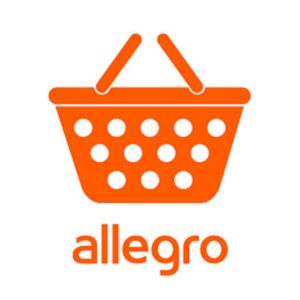In the dynamic world of e-commerce, few platforms stand out as significantly as Allegro. Founded in 1999, Allegro has grown to become Poland’s leading online marketplace, boasting millions of users and a vast array of products. This blog delves into the key aspects of Allegro’s success, exploring its history, user experience, business model, competitive edge, impact on the market, and future prospects.
The Genesis of Allegro
Allegro began its journey at a time when e-commerce was still in its infancy. Originating in Poland, it quickly gained traction by tapping into the burgeoning internet market. The platform was initially a place where users could auction items, but it soon expanded to fixed-price sales, encompassing a broader range of products. This evolution mirrored the global shift in e-commerce trends, allowing Allegro to remain relevant and competitive.
User Experience and Interface
One of Allegro’s significant strengths is its user-friendly interface. The platform is designed to cater to both buyers and sellers, providing a seamless shopping experience. The search functionality is robust, allowing users to find products quickly. Additionally, Allegro offers various filters and categories, making it easy to navigate through millions of listings. For sellers, the platform provides detailed analytics and tools to manage their stores effectively, enhancing their ability to reach a larger audience.
The Business Model: A Blend of Innovation and Tradition
Allegro’s business model is a blend of traditional e-commerce practices and innovative approaches. The platform primarily generates revenue through listing fees, commission on sales, and advertising. By offering a mix of auction-style and fixed-price sales, Allegro caters to a diverse customer base. The introduction of Allegro Pay, a payment service, and Allegro Smart!, a subscription service offering free delivery and other perks, have further solidified its position in the market. These services not only enhance customer loyalty but also provide additional revenue streams.
Competitive Edge: What Sets Allegro Apart
In a competitive e-commerce landscape, Allegro has carved out a niche for itself by focusing on customer satisfaction and local market needs. Unlike global giants such as Amazon and eBay, Allegro has tailored its services to Polish consumers, understanding their preferences and shopping habits. The platform offers localized payment options, delivery services, and customer support, which have contributed significantly to its popularity. Furthermore, Allegro’s emphasis on security, with measures like buyer protection and reliable seller verification processes, has built a strong trust with its user base.
Market Impact and Growth
Allegro’s impact on the Polish market is profound. As the largest e-commerce platform in Poland, it has transformed the way people shop, shifting a considerable portion of retail online. The platform supports small and medium-sized enterprises (SMEs) by providing them with a marketplace to reach a wider audience. This democratization of retail has had a ripple effect on the economy, fostering entrepreneurship and innovation. Allegro’s influence extends beyond just shopping; it has become a cultural phenomenon in Poland, synonymous with online retail.
Future Prospects and Innovations
Looking ahead, Allegro’s future appears promising. The company continues to innovate, with plans to expand its services and enhance user experience further. Allegro is investing in artificial intelligence and machine learning to improve search algorithms and personalized recommendations. Moreover, the platform is exploring international expansion, aiming to replicate its success in other Central and Eastern European countries. Sustainability is also on Allegro’s agenda, with initiatives aimed at reducing the environmental impact of e-commerce, such as promoting eco-friendly products and packaging.
Conclusion
Allegro’s journey from a nascent online auction site to a dominant e-commerce powerhouse is a testament to its adaptability and understanding of the market. By focusing on user experience, leveraging innovative business models, and staying attuned to local needs, Allegro has managed to thrive in a competitive landscape. As it looks to the future, Allegro’s commitment to innovation and sustainability will likely keep it at the forefront of the e-commerce industry, both in Poland and potentially beyond. The platform’s ability to evolve with changing consumer behaviors and technological advancements ensures that it remains a vital part of the online shopping ecosystem.


